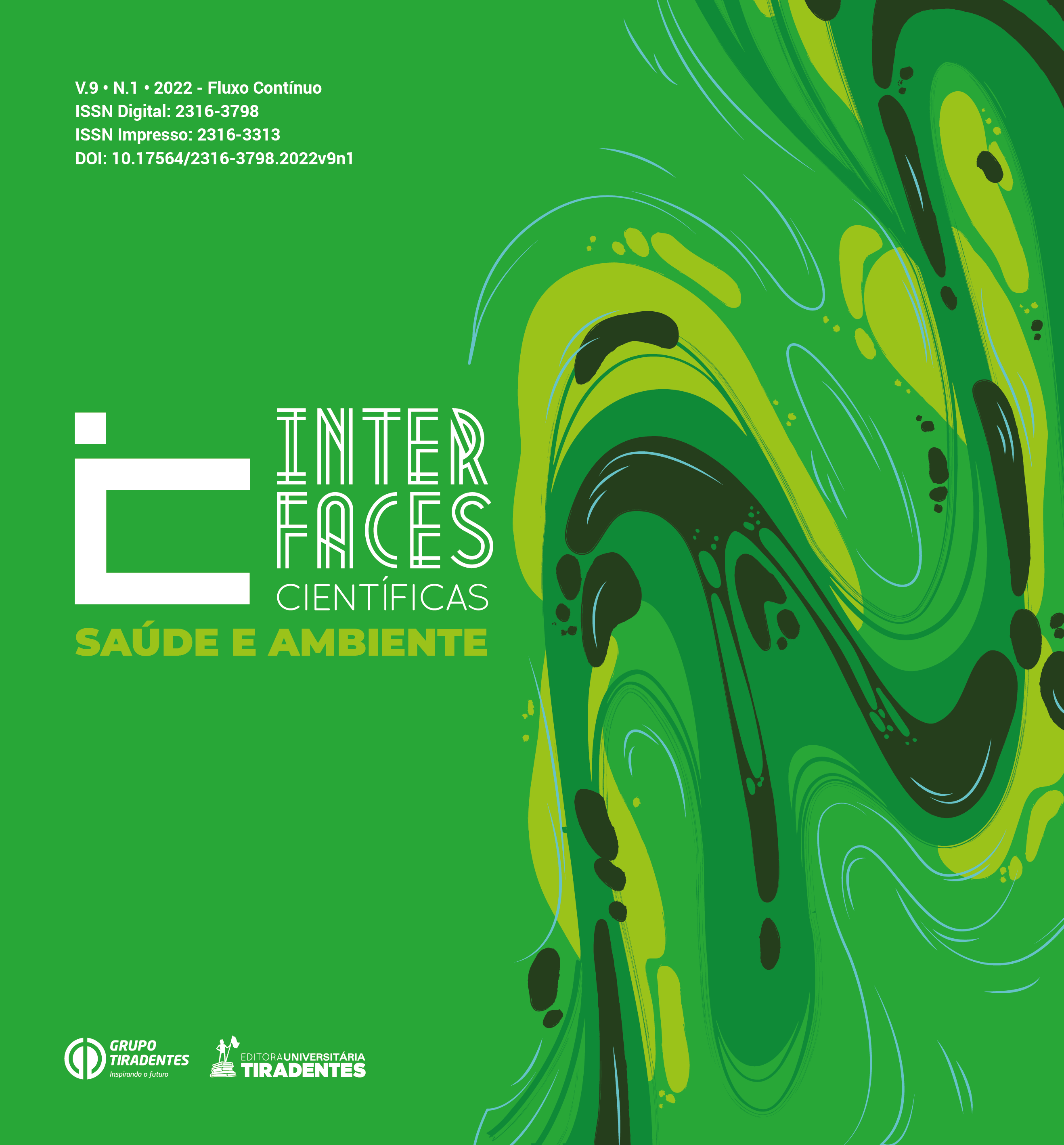Monitoring water quality in hospitals: a longitudinal comparative study on detection of critical points
DOI:
https://doi.org/10.17564/2316-3798.2022v9n1p159-174Published
Downloads
Downloads
Issue
Section
License
Copyright (c) 2022 Interfaces Científicas - Saúde e Ambiente

This work is licensed under a Creative Commons Attribution-NonCommercial 4.0 International License.
Autores que publicam nesta revista concordam com os seguintes termos:
a. Autores mantêm os direitos autorais e concedem à revista o direito de primeira publicação, com o trabalho simultaneamente licenciado sob a Licença Creative Commons Attribution que permite o compartilhamento do trabalho com reconhecimento da autoria e publicação inicial nesta revista.
b. Autores têm permissão e são estimulados a distribuir seu trabalho on-line (ex.: em repositórios institucionais ou na sua página pessoal), já que isso pode gerar aumento o impacto e a citação do trabalho publicado (Veja O Efeito do Acesso Livre).
Abstract
In the hospital environment, water is used for different purposes, such as: consumption, cleaning processes and hemodialysis. Regular supply and frequent monitoring of water quality are essential to guarantee the safety of the activities carried out. Consolidation Ordinance n° 5 of September 28th, 2017, of the Ministry of Health, regulates the sensory, chemical, and microbiological requirements for drinking water in Brazil. In the present work, a longitudinal study of the quality monitoring of the water used in two hospitals was carried out, identifying its main critical points. For this, 126 water samples collected from 2016 to 2019 were analyzed, of which 80 came from hospital A and 46 from hospital B. Over the four years of study, there was a variation in the number of samples in disagreement with current legislation. It was also verified that the samples showed nonconformities mainly in the analysis of free residual chlorine, 11.3% and 19.6%, and heterotrophic bacteria count, 5.0% and 2.2%, in hospitals A and B, respectively. With this, the importance of monitoring the quality of water in hospitals is verified, aiming the health care of employees and, in particular, of patients.
Keywords: Residual Chlorine. Quality Control. Water Potability Standard.




















